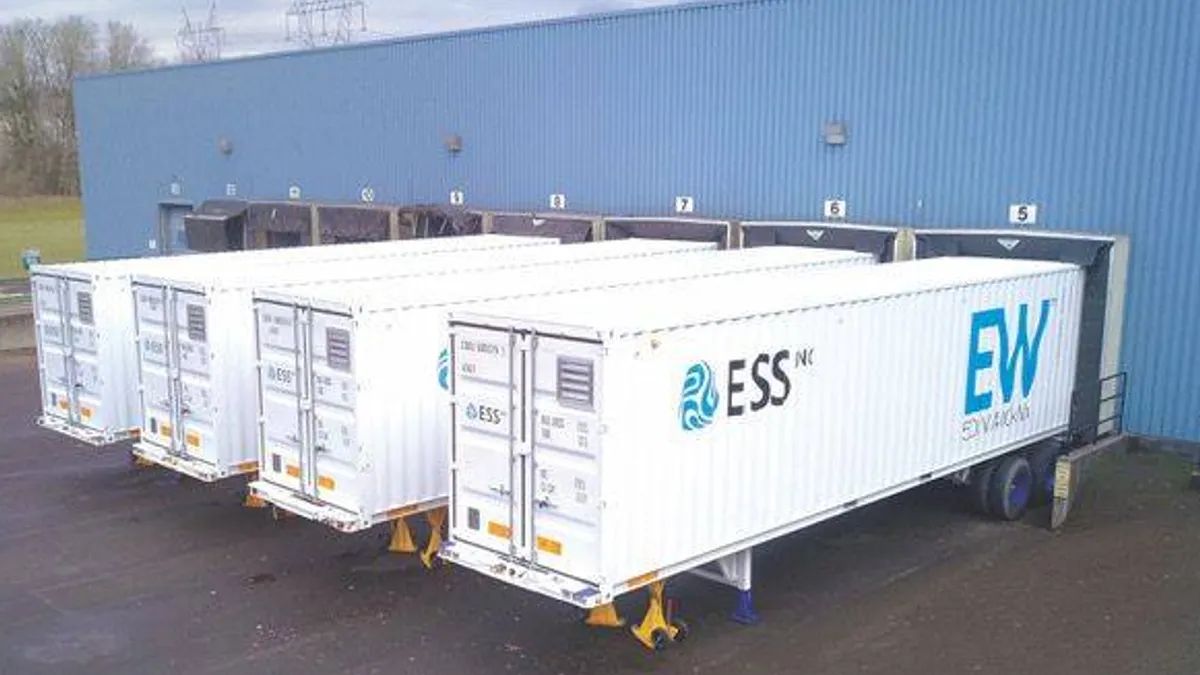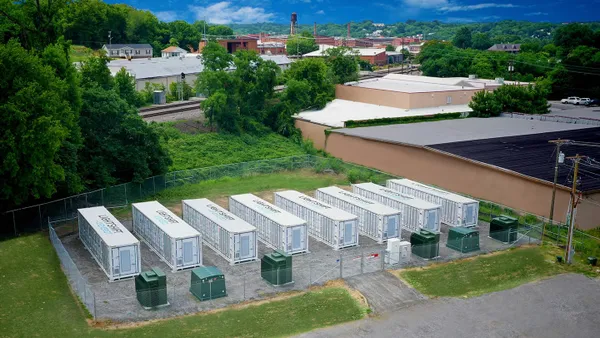Dive Brief:
-
Stakeholders June 19 responded to proposals from Maryland's four investor-owned utilities (IOUs) in the state's energy storage pilot program, offering a number of suggestions, but mostly supporting all eight proposed projects.
-
Maryland in April of last year passed an energy storage bill that requires IOUs in the state to each solicit two energy storage pilot projects. Data from those projects is intended to inform future use of the technology in the state.
-
"Once the energy storage operations are up and running in a real-world environment, we plan to analyze the results and determine, on a case-by-case basis, where energy storage projects are an optimal solution in our service territories," Mark Durbin, a senior consultant with Potomac Edison, told Utility Dive in an email.
Dive Insight:
A path forward for ongoing energy storage in Maryland is not yet clear.
"We don't want to speculate about future operations until we gain a better understanding of how the pilot program benefits our customers," Durbin said. "We plan to work with the [Public Service Commission (PSC)] staff and Commissioners to accurately identify and quantify the potential benefits that battery energy storage can provide for our customers during the pilot program."
The Maryland PSC accepted proposals from the state's four investor-owned utilities — Exelon Corporation's Baltimore Gas & Electric (BGE) and Potomac Electric Power Company (Pepco), Delmarva Power and Light (DPL) and FirstEnergy Corp.'s Potomac Edison.
Eight projects were proposed by the April 15 deadline, two from each of the four utilities. The Exelon subsidiaries submitted a joint proposal.
Pilot projects could include:
- BGE's proposed 2.5 MW lithium-ion battery system sited at the Fairhaven substation in Southern Anne Arundel County and a third-party owned lithium-ion battery energy storage system at Chesapeake Beach, possibly a Tesla MegaPack;
- Pepco's proposal for a utility-owned, third-party operated 1 MW lithium iron phosphate battery system at National Harbor and a third-party owned and operated 1 MW nickel metal chloride lithium-ion battery storage system at the Montgomery County bus depot in Silver Spring;
- DPL's proposal for a third-party owned and operated virtual power plant with a plan to recruit 110 residential customers in the Elk Neck area who would each receive free installation of an LG Electronics 5kW/19.6 kWh lithium-ion battery; and a 1 MW nickel manganese cobalt lithium-ion battery system in Ocean City; and
- Potomac Edison's proposed 1.75 MW lithium nickel manganese cobalt oxide battery energy storage system on its Town Hill circuit and a 0.75 MW lithium nickel manganese cobalt oxide battery energy storage system on its Little Orleans circuit, which has suffered tree-related outages.
Comments were submitted by the Commission staff; Energy Storage Association; Maryland Department of Natural Resources; the state's ratepayer advocate, the Office of People's Counsel (OPC); Maryland-DC-Virginia Solar Energy Industries Association (MDV-SEIA); state legislators; and Eric D. Wachsman, Director of the Maryland Energy Innovation Institute at the University of Maryland.
Most expressed support with some exceptions or qualifications:
- OPC recommended the commission reject Potomac Edison's Town Hill proposal because it is too similar to the Little Orleans project and not "in the public and ratepayer interest;"
- MDV-SEIA encouraged the commission to ensure several pilot projects include the integration of solar photovoltaics with storage systems;
- The Department of Natural Resources stressed the need for battery safety protocols and training and preparation for fire station personnel, citing an April 2019 explosion at a utility-scale lithium-ion battery facility owned by Arizona Public Service, where four first responders were sent to the hospital; and
- Wachsman encouraged the PSC to investigate the potential for the Virtual Power Plant model beyond the single proposed project and to include Maryland-based capabilities.
The way forward may require additional legislation and rulemaking.
Regulators in several states have required utilities to develop storage projects as they work to achieve climate and other goals set by legislatures. "This provides a framework for utilities to get to understand the technology," Yayoi Sekine, head of decentralized energy at BloombergNEF told Utility Dive.
"As states set ambitious clean energy targets, the question for regulators becomes how do you hit those targets," Sekine said.













